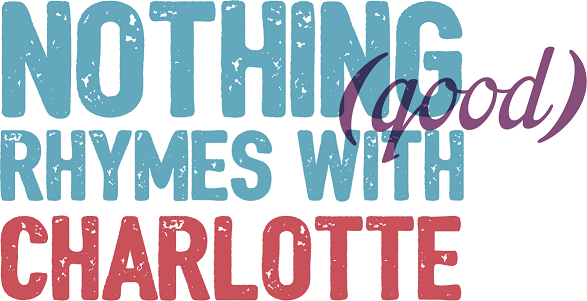Want a healthier relationship with your phone? Follow these eight rules
 There comes a moment when you have to stop blaming technology for distracting you from what you’re supposed to be doing, and take responsibility for the level to which you’re letting yourself be distracted.
There comes a moment when you have to stop blaming technology for distracting you from what you’re supposed to be doing, and take responsibility for the level to which you’re letting yourself be distracted.
I have a very mixed relationship with my phone. On the one hand, it’s a source of enough hilarious, brilliant and interesting articles, images and social media updates to keep me entertained until I’m 85. On the other, it could easily be the reason why I’ll reach that age without having achieved anything at all.
So I’m trying to take more responsibility for my screen time, to use my phone and other devices in a more considered way, and to henceforth live a life of productivity, peace and tranquility. (Ok, the last two are a little ambitious for somebody who lives in London so let’s just focus on getting more done for now…)
Here are eight rules I’m trying to live by – written down to hold me to account, and for the benefit of anyone who’d like to join me:
1. You don’t have to reply to that WhatsApp message right now.
I’m not sure what it is about this particular means of communication that makes us think our responses have to be immediate. But unless you’re due to meet up with the person contacting you right now, you are free to wait until a time that is convenient to come back to them.
I know that I have got into the habit of letting myself be interrupted and I don’t like it. You are allowed to carry on living your life as you had planned before your friend got in touch to ask how last night’s date was / to share a hilarious dog video. Respond later to tell them that you won’t be seeing the guy again because he kept saying ‘pacific’ instead of ‘specific’ / that it’s the best piece of footage you’ve ever seen. Messages like that are worth waiting for.
2. Take Facebook off your phone.
You know what it’s like, a small red ‘1’ pops up on your Facebook app and you feel compelled to stop everything and check what it’s for. Your eyes widen, your heart races, and your brain starts rushing through possibilities – maybe somebody likes something I’ve said! Or perhaps I’ve been invited to a super cool party! Or maybe somebody has put a nice comment about how much I look like the sculpture I’m impersonating in my holiday photos and I’ll feel validated for up to five minutes!
But I’m just not sure this constant feeling of high and low is good for us. It’s exhausting enough on a laptop screen, let alone when you carry it around in your pocket. So I’ve removed the app from my phone. I still look at Facebook on my computer because there are aspects of it that I like (such as the multiple opportunities it gives me to cry over lovely videos and photographs of Barack Obama and every ounce of hope I used to have for our world) but I feel more in control now. I make an active decision to look at it rather than just scrolling to it automatically.
Your emotions might not be as easily affected by social media as mine, in which case, I ENVY YOU. But if your mind and heart are as delicate as mine, I recommend finding small ways to set yourself free.
 3. You don’t need to have the Internet switched on all the time.
3. You don’t need to have the Internet switched on all the time.
I don’t turn on my 4G unless I really need to. This is partly because I’m tight and don’t want to end up paying extra because I got carried away watching a video of a cat playing with a bottle cap and used up all my data. But it’s more to do with the fact that I can feel my stress levels increase instantly when I look at my phone, particularly when I’m travelling or moving around London town and I’ve already got enough to think about. So I try to make a conscious choice not to do it, to do something more calming instead, and to re-engage with emails and whatever later on. I now use as much of the time I spend on trains as possible to read books, you know, like they did in olden times, and WOW do I feel better for it.
4. Don’t start your day by scrolling through your phone.
This is particularly difficult if your phone is also your alarm clock, as your finger is right there on the screen hitting snooze for the 15th time before you get up. It’s just too easy to take a trip around your apps before you go in the shower but try not to get sucked in. I read in a magazine that a healthy start to the day involves hydration and a nice breakfast, not scrolling through your friend’s Instagram feed and wondering why their social life is so much more exciting than yours. I KNOW, I WAS SURPRISED TOO.
5. The mute and unfollow buttons are your friends – use them.
Internet-inspired anger and self-loathing are the most unhealthy addictions I’ve developed since I discovered that Walkers has released its own version of Pringles and that they are, contrary to my initial fears, delicious. Neither emotion brings me any joy or useful knowledge and wastes time I could be using eating other new types of crisp.
And it’s this that makes you realise why the mute and unfollow buttons exist. Because you don’t have to listen to anyone – not on the Internet, anyway. It doesn’t matter if you’re friends in real life, or if everybody says they’re the blogger/writer/celebrity you have to follow, or if they follow you, you don’t have to have them in your feed. Hit that button and never look back. There are plenty of other things in the world that will send you into an emotional tailspin without social media updates being one of them.
The option to mute WhatsApp conversations is also a revelation for me. As I said before, I really struggle not to stop what I’m doing to respond to messages straight away. But if you mute a conversation, it won’t interrupt you – you can come back to it in your own time. It feels a bit harsh hitting the silence button but remember, you’re not making a statement about the people speaking to you, just about your need to live a more productive life outside of your phone.
 6. Make better use of Twitter lists.
6. Make better use of Twitter lists.
I would hate to find out how much of 2016 I’ve spent scrolling mindlessly through Twitter. Granted, this year has been so dire that it’s felt necessary to remain permanently online in case you miss yet another catastrophic voting outcome, death of a hero, or piece of worrying chocolate related news, but it’s still not a good use of time. So I’m trying to use Twitter lists more. If you’re not familiar, they let you create lists of Twitter accounts you’re particularly interested in. I have one for my friends and family, another for publications I’d like to write for, and I’m considering making one that is just filled with happy images of laughing babies or something, otherwise I fear I may never smile again.
7. Train yourself not to automatically check all your apps after taking a phone call or receiving a text.
Save ten minutes every time your phone makes a sound by not doing this!
I’m trying to prevent myself from doing this by asking: am I opening my apps to look for something in particular or am I just dicking about? The answer is pretty much always the latter and acknowledging that makes me snap out of it, put phone down and get back to whatever I was doing before it rang/beeped.
Even if your original activity wasn’t necessarily the most worthwhile or highbrow thing in the world (which I admit that eating cheese puffs in the bath is not) the point is that your phone shouldn’t have the power to interrupt you.
8. When you go out for dinner, leave your phone in your bag.
Look at any table in a bar or restaurant and in many cases you’ll see a phone for every person sitting there. But why? I understand that if a member of the party hasn’t arrived yet or you need to keep an eye out for a call from the babysitter then you may need your phone in sight, but otherwise put it away.
You get a much better experience of everybody if they’re completely in the room with you. Jobs and personal lives require people to be on their phones from time to time, but, if yours doesn’t, I say enjoy the break. Taste your food, look your pals in the eye, and give your thumbs a well-earned rest.
I can’t imagine anybody at the end of their life will wish they’d paid their social media followers more attention, but they might regret not listening to what their friends and family had to say.
